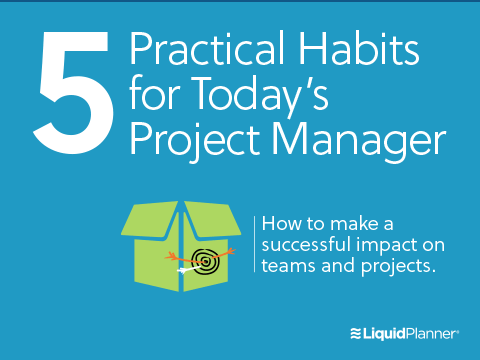Most of us love the feeling that comes with a productive day and finishing tasks that are on our list.
As a manager, you probably also love seeing your team move through tasks so efficiently that your projects stay on track and it becomes easier for you to serve—and please—your clients.
We live in a word where we value the speedy completion of tasks. It’s the only way to cope with our increasing workloads, public opinion tells us. To help us with our busy schedules we’ve turned to to-do lists and time management strategies that increase our focus on the most important tasks at hand. But the productivity race isn’t all it’s been cracked up to be.
Working to maximize productivity skills can also make us overly task-oriented and transactional. As we work faster, not only do we down-prioritize personal relationships, we also compromise on quality; in haste, we might skip over important details that could better serve our projects in the long run.
In Timothy Ferriss’s best-selling book The 4-Hour Work Week he asks two all-important questions:
- “Am I inventing things to do to avoid the important?”
- “Am I being productive or just active?”
It’s time that we use these questions as they were intended: Not to increase our short-term output, but to increase the long-term value of what we do. Productivity for its own sake isn’t valuable.
Losing the human factor
In our quest to cope with our workload, we pay less attention to human relationships in order to get our work done quicker. Basic time management might, for instance, teaches you that taking time out for lunch with a colleague is unproductive, or that chit-chatting with your peers in the office is time wasted. But these small conversations bind us together; they provide us with valuable information, broaden our horizon, and enable us to learn from others. They also benefit us in a deeper psychological way. When we spend time with others—e.g., team members, colleagues, managers—and make an effort to understand their situations, we are better able to open up, trust and empathize. These are crucial characteristics to possess and access when working on projects.
Completing a successful project is so much more than getting a bunch of tasks done on time. It’s about working well together as a team, understanding how to use each person’s strengths and appreciating what each stakeholder and end user would like to gain from the project.
In many cases, project-oriented professionals are so preoccupied with the completion of tasks that they forget the importance of relationship building. They don’t take time out to socialize and engage in one-on-one conversations, and when someone turns up at their desk to ask them for advice, they continue to write their email and only fleetingly look at their team member. This is the dark side of productivity. This is when we become effective taskmasters at the expense of relationship building. Or put in another way, it’s when the quest for productivity has forced us to become more transactional than transformational.
The addiction to short-term productivity gains
The dark side of productivity means that we experience a short-term productivity gain, which can become very addictive, as we love to get through our task list by the end of the day. But unfortunately, not everyone is aware of the medium and long-term side effects. We jeopardize relationships and we make assumptions and poorly thought-through decisions because we move too quickly. It can be devastating to treat a project simply as a set of tasks that need to be completed as quickly as possible.
If our projects are to add value, we need to deeply engage with everyone, from team members and stakeholders to end-users. It takes time to understand the end-users’ needs, but it’s fundamental to producing a quality product that adds value. Too many projects fail because we aren’t good enough at understanding the needs and behaviors that drive our team members, stakeholders and end users.
To ensure that your approach to productivity is well balanced and that you aren’t becoming too transactional, make use of the following tips:
- Take a step back and assess if your time management approach is helping you to gain results in the long term, as well as the short term.
- Examine your to-do list and make sure that relationship building activities and interactions with the end-users feature on it.
- Take time out for team building and nurture your relationships with clients and stakeholders.
- Be careful not to make knee-jerk decisions when you’re under time pressure.
- Don’t skip over important details that could later come back and bite you.
- When someone walks into your office to ask for advice, give them your full attention.
Being productive is a great attribute. You just want to pay attention to how you’re being productive, and that–when you put your head down–you don’t forget to look up and see what’s passing by around you.
Knowing how to manage projects efficiently, inspire the best work from your team and keep your eye on the big picture is another way to make great productivity gains. To learn more, download our eBook, 5 Practical Habits for Today’s Project Manager.








